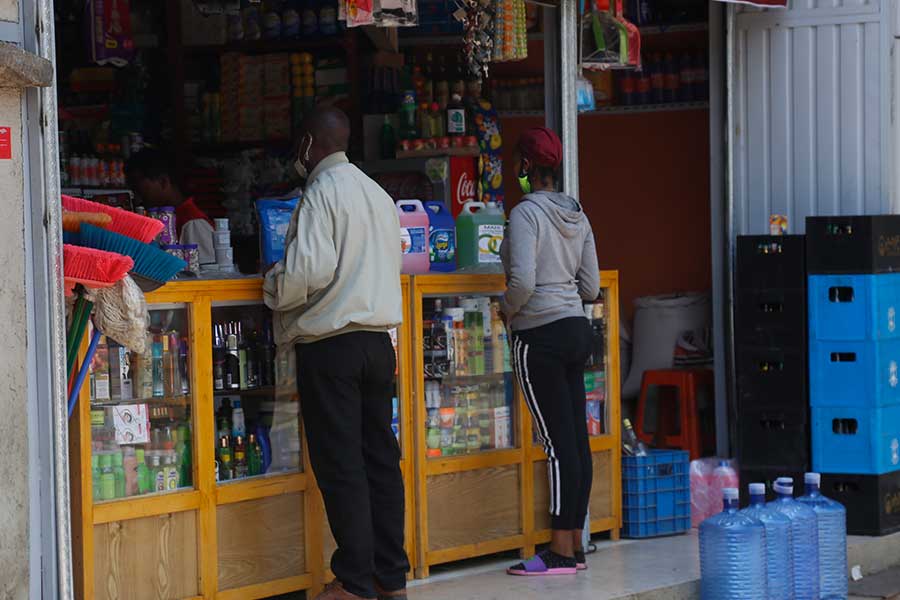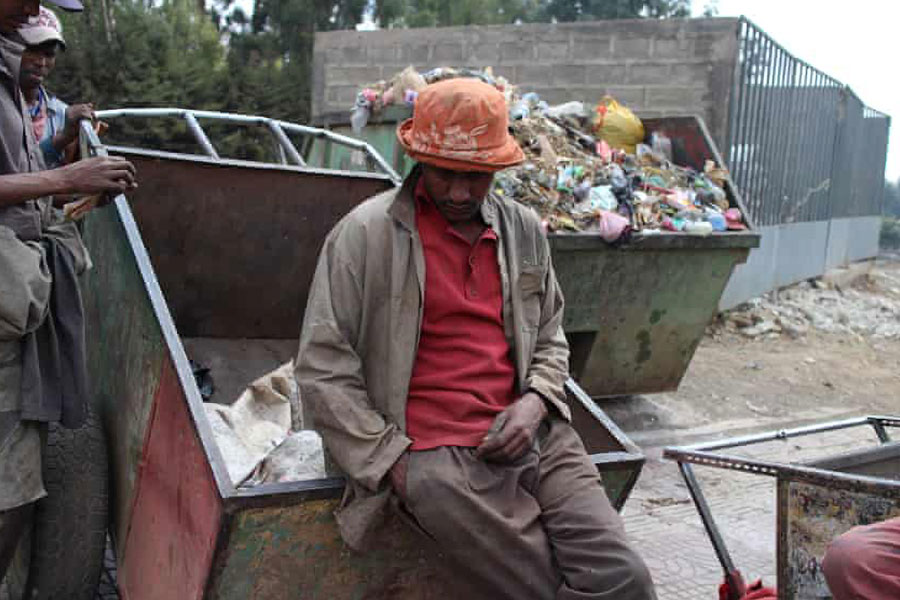
My Opinion | Aug 17,2019
Aug 28 , 2021
By Eden Sahle
Recently, I began taking a course on behavioural science with about 10 people in my class. It took only a few minutes to introduce ourselves to one another and to our young and energetic instructor.
Not long after the lecture started, our instructor jumped right into the grim situation of Ethiopia. Some of the specific and chilling things he was telling us for an entire couple of hours were new to me, although I was aware of the many crises the nation is undergoing. From family to society, he explained how hostile and dysfunctional we are.
We listened to his stories in shock and sadness. It is surprising that all of us are not bathed in tears given the plight of our country and its people, according to him. For most of us, individual suffering and death are tragedies while we tend to have a comparatively less sympathetic response to many people’s loss of life. The deaths of many are often taken just as statistics where the fact that these people are individuals is forgotten. They are someone's father, mother, sister, brother, spouse, sibling, child, or friend.
This is because it is much harder to comprehend a mass tragedy than a single death. But in both situations, precious human life is being lost. Beneath the surface of the numbers, there are always individuals.
The tendency to fail to relate to the loss of many lives at such regular intervals and scale in Ethiopia has triggered our emotional numbing and complacent behaviour to the endless tragedies we wake up to every morning. The more we are exposed to large numbers of losses of life, the more desensitised we become.
It is not just desensitisation. The public, exposed to war and the persistent COVID-19 pandemic, is experiencing a fall in mental, emotional and physical health. Severe losses and disruptions in lives are leading to high rates of depression and anxiety. These impacts may be prolonged by exposure to further hardships and violence in daily lives. The heavy impact of this is making society lose its meaning. They may also have to change their moral structure to care for others and adapt to the new reality.
No one seems to know when peace and order will be restored. Confusion has erupted as people settle for their own understanding and analysis of the ongoing crisis. We are fast losing people who comfort and tell us there is light at the end of the tunnel, that somehow a better day would come for the nation and its people. Words may not conceal realities, bring the diseased back, or even meaningfully alleviate the pain grieving families feel, but it gives hope that can keep people going.
It is about time that we rise to help and comfort at least one person, to care for another individual who is part of society. We should not be resigned to the persistence of tragedies and ignore the individuals that make up mass catastrophes.
“If I look at the mass, I will never act,” as Mother Teresa once famously said. “If I look at the one, I will.”
Whether we like it or not, our welfare is highly dependent on that of others. If caring for others is such a fundamental aspect of humanity, we should ask ourselves why we do not practice it often. For the most part, developing compassion for others allows us to ease their burden, and reaching out to one person for support is reaching out to many.
The joy that comes with choosing to care for others' loss and tragedy is immeasurable. As we all have people we hold close to us, the people we only consider as statistics are someone's beloved. Even if they live at the far periphery of our concentric circles of concern, we have responsibilities to people. If not out of compassion, at least from the view that our welfare eventually depends on it as well.
PUBLISHED ON
Aug 28,2021 [ VOL
22 , NO
1113]

My Opinion | Aug 17,2019

Editorial | Oct 18,2025

Commentaries | Sep 23,2023

Sunday with Eden | Oct 16,2020

Fortune News | Nov 21,2018

Featured | Jul 10,2020

View From Arada | Oct 09,2021

Viewpoints | Jul 13,2024

Sunday with Eden | Jul 27,2019

Letter To Editor | Mar 16,2019

Photo Gallery | 180726 Views | May 06,2019

Photo Gallery | 170920 Views | Apr 26,2019

Photo Gallery | 162015 Views | Oct 06,2021

My Opinion | 137309 Views | Aug 14,2021

Dec 22 , 2024 . By TIZITA SHEWAFERAW
Charged with transforming colossal state-owned enterprises into modern and competitiv...

Aug 18 , 2024 . By AKSAH ITALO
Although predictable Yonas Zerihun's job in the ride-hailing service is not immune to...

Jul 28 , 2024 . By TIZITA SHEWAFERAW
Unhabitual, perhaps too many, Samuel Gebreyohannes, 38, used to occasionally enjoy a couple of beers at breakfast. However, he recently swit...

Jul 13 , 2024 . By AKSAH ITALO
Investors who rely on tractors, trucks, and field vehicles for commuting, transporting commodities, and f...

Nov 1 , 2025
The National Bank of Ethiopia (NBE) issued a statement two weeks ago that appeared to...

Oct 25 , 2025
The regulatory machinery is on overdrive. In only two years, no fewer than 35 new pro...

Oct 18 , 2025
The political establishment, notably the ruling party and its top brass, has become p...

Oct 11 , 2025
Ladislas Farago, a roving Associated Press (AP) correspondent, arrived in Ethiopia in...

Nov 2 , 2025
The National Bank of Ethiopia (NBE) has scrapped the credit-growth ceiling that had s...

Nov 2 , 2025 . By SURAFEL MULUGETA
The burgeoning data mining industry is struggling with mounting concerns following th...

Nov 2 , 2025 . By YITBAREK GETACHEW
Berhan Bank has chosen a different route in its pursuit of a new headquarters, opting for a transitional building instea...

Nov 2 , 2025 . By BEZAWIT HULUAGER
Nib International Bank S.C. has found itself at the epicentre of a severe governance...